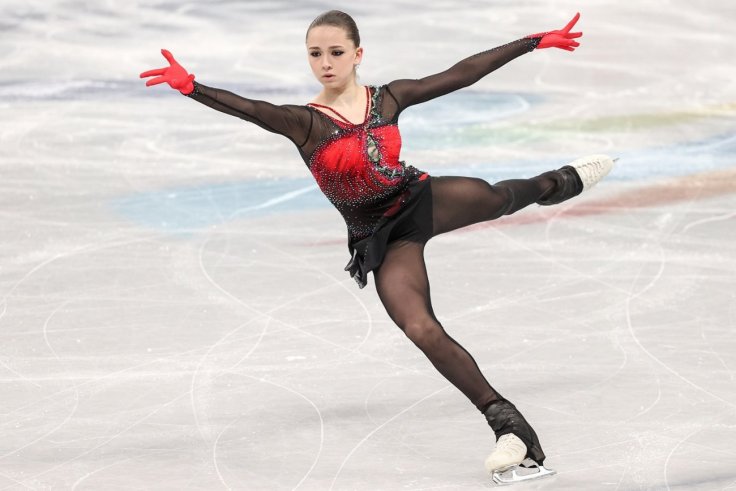Russian figure skater Kamila Valieva, 15, tested positive for a banned heart drug before the Beijing 2022 Olympics. However, she went on to take part in the international level competition and the Russian team won gold. According to the latest reports, despite the positive test, Valieva will be competing again at the Winter Olympics as the Court of Arbitration for Sport on February 14, announced that the teenage Russian figure skater has been cleared to compete in the games.
Meanwhile, the medal ceremony for Valieva has been delayed until the investigation into doping allegations against her is finalised. "Should Ms Valieva finish amongst the top three competitors in the Women's Single Skating competition, no flower ceremony and no medal ceremony will take place during the Olympic Winter Games Beijing 2022," an official statement issued by the International Olympic Committee read.
Valieva tested positive for angina-prevention drug trimetazidine on December 25, 2021. She was provisionally suspended for the controversial act on February 8, but she challenged the decision and the Russian Anti-Doping Agency (Rusada) lifted the ban the next day, according to BBC.

What is Trimetazidine?
Trimetazidine, which is also known as TMZ, is a kind of drug that is used to treat people with angina, a condition where there's insufficient supply of oxygen and blood to the heart or other heart-related conditions and also vertigo, according to some medical. This heart drug has been banned by Wada since the year 2014.
Why Trimetazidine is banned in sports?
The World Anti-Doping Agency has banned the heart drug as experts believe the drug improves oxygen and blood flow to the heart, it can build endurance which could give unfair advantage to a figure skater.
Moreover, this isn't the first case of trimetazidine in sports doping. Earlier, Chinese star swimmer Sun Yang, who has won the gold medal at the Olympics three times, served a three-month ban in 2014 after testing positive for the drug.
Russian bobsledder Nadezhda Sergeeva also tested positive for the trimetazidine drug at the 2018 Pyeongchang Olympics leading to her disqualification from the two-woman bobsled event. She had to serve an eight-month ban.









